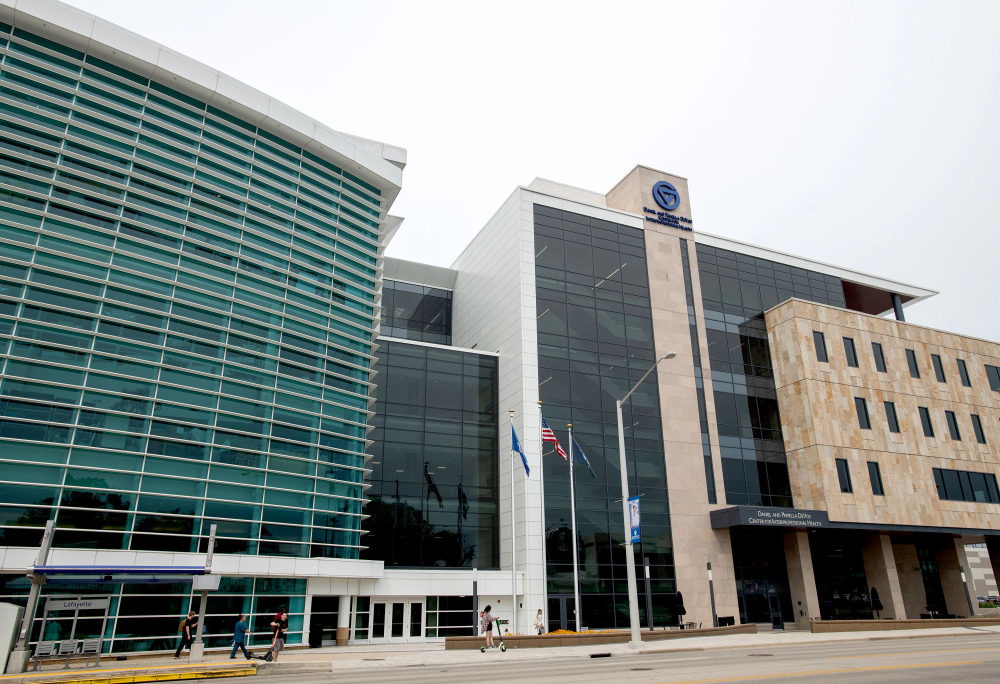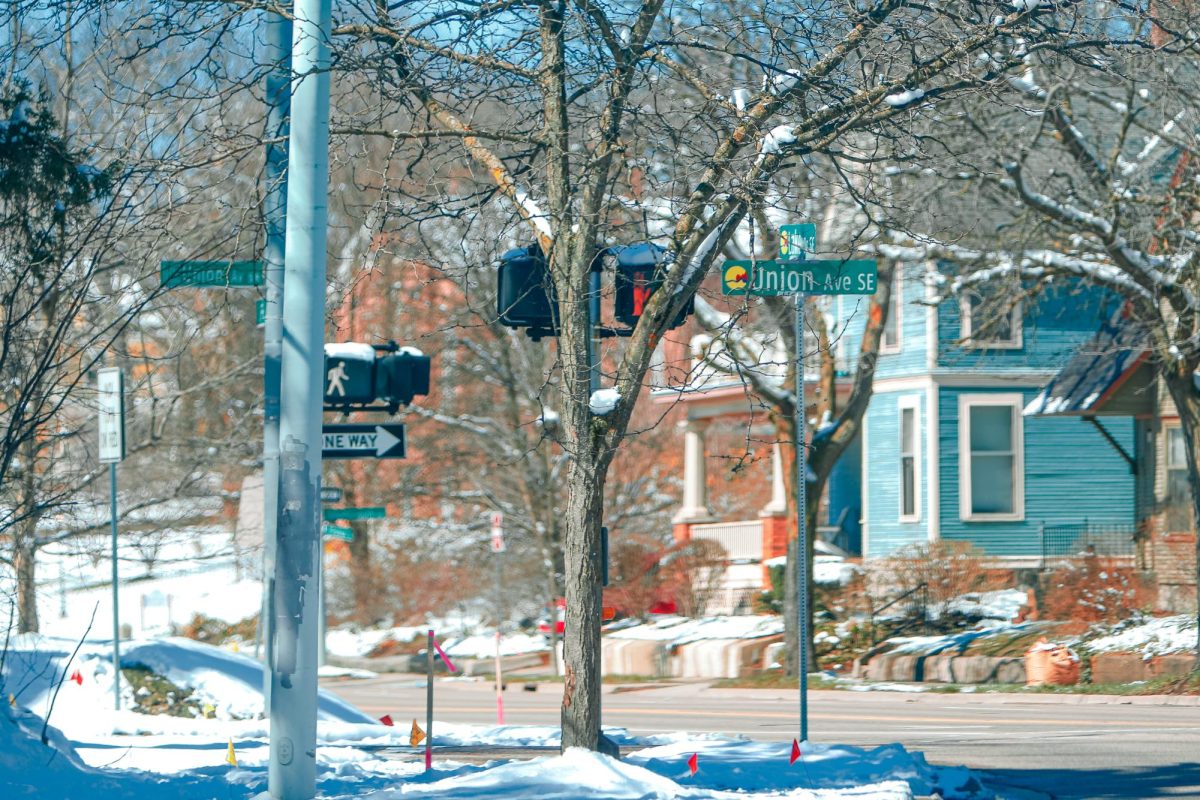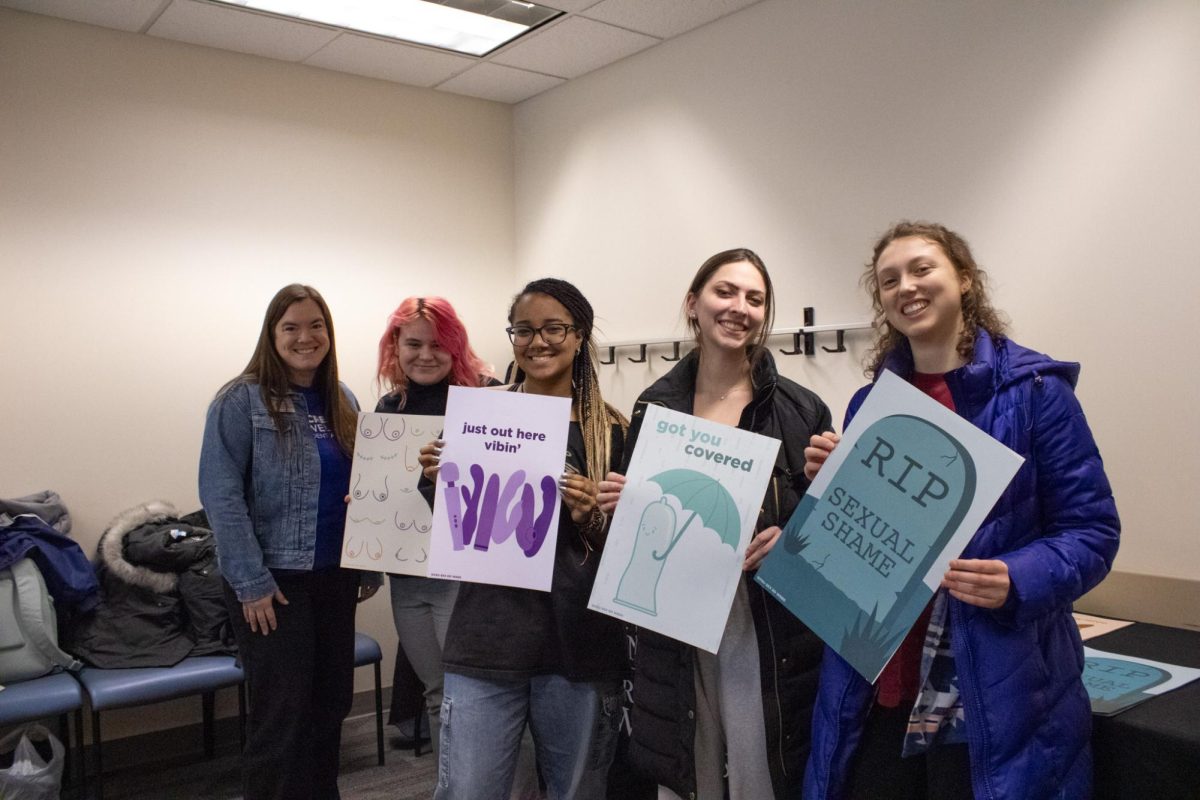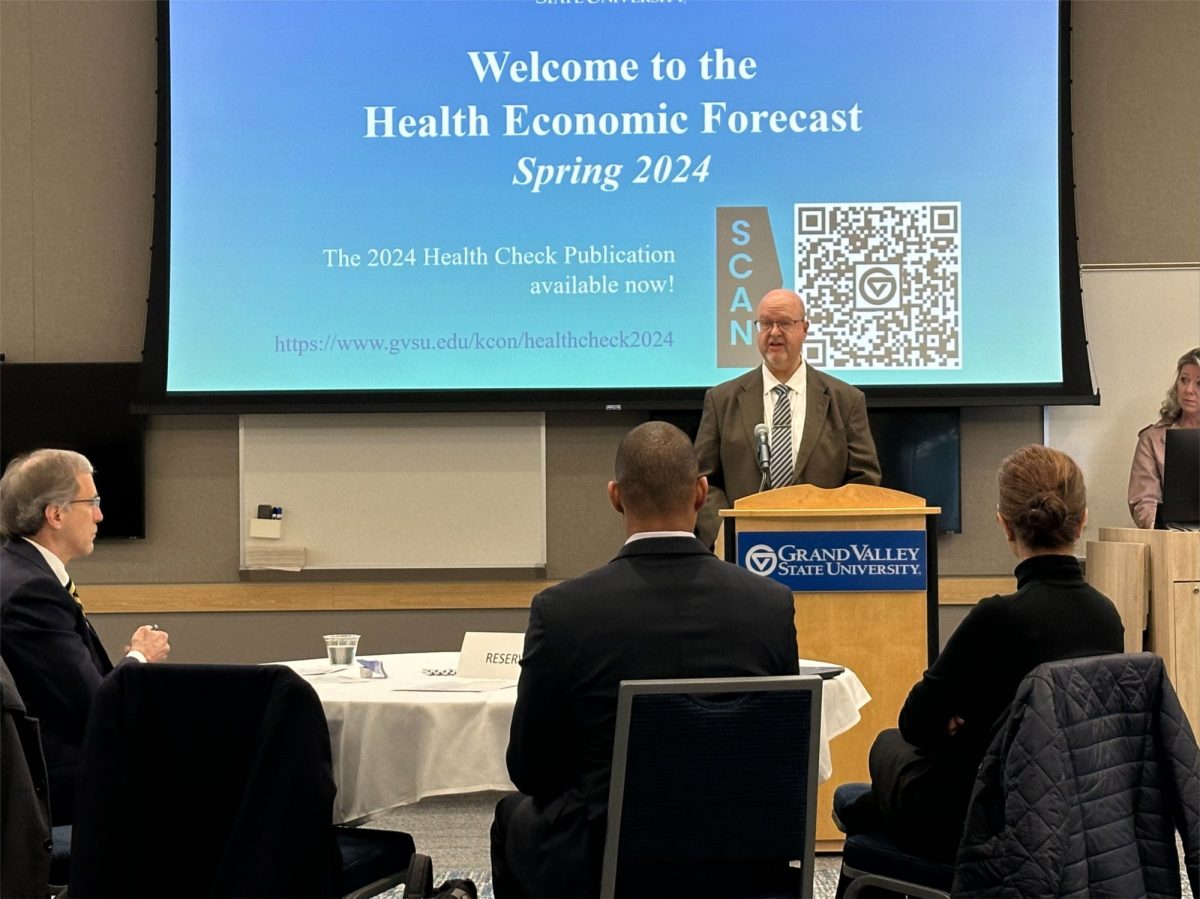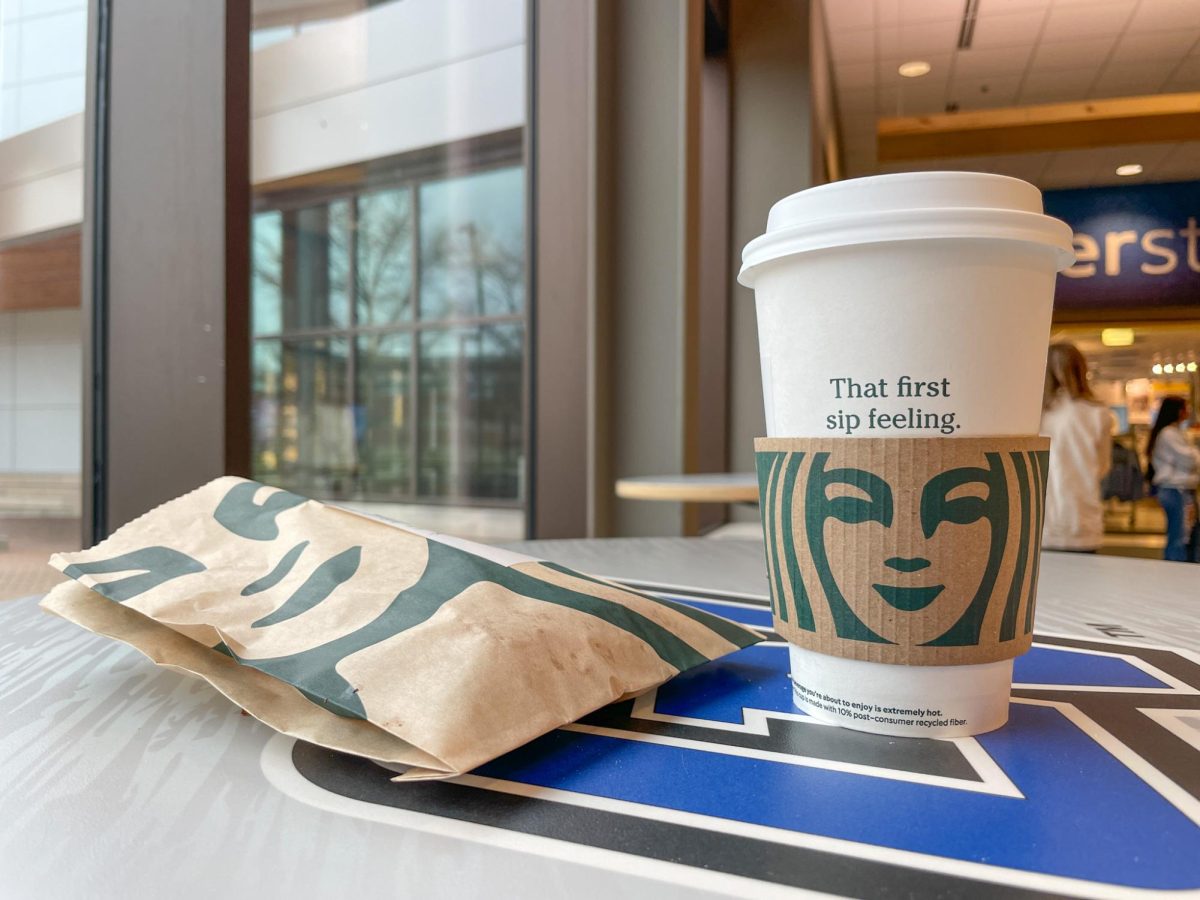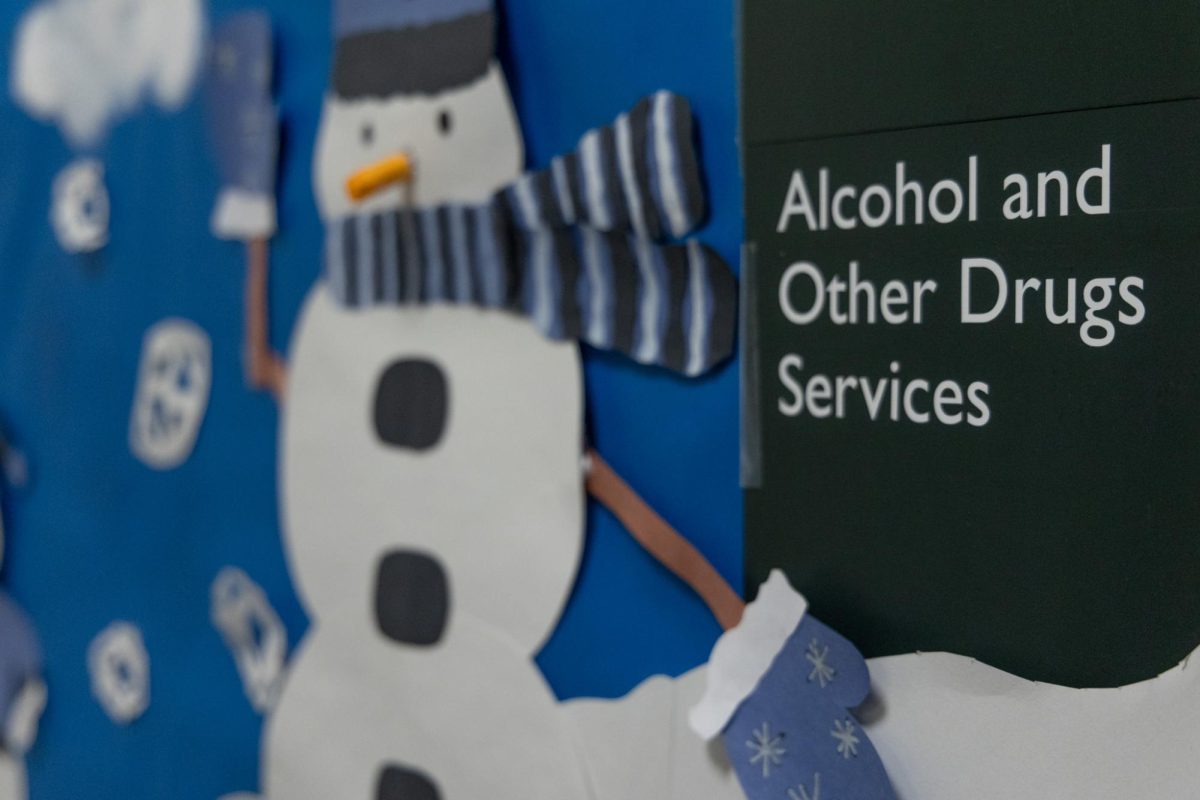Accessing medical aid while experiencing homelessness can be challenging. On Thursday, Nov. 16, Beth Makowski, the Medical Director for Michigan State University, hosted a lecture at the DeVos Center at Grand Valley State University about providing healthcare for those experiencing homelessness.
Alongside Makowski during the presentation, “Street Medicine: Caring for the Unsheltered,” were MSU medical students Christa Schafer and Victoria Moaddel. The presentation was a part of MSU’s “Your Health” lecture series. The presentation’s main emphasis was on street medicine, which brings medical treatment to those experiencing homelessness, hosted in conjunction with GVSU and Grand Rapids Community College.
Grand Rapids Street Medicine started when the need for a community-centered, student-run clinic became apparent. Mel Trotter Ministries, Corwell Health and the City of Grand Rapids have been some of the major financial supporters of street medicine in the area. Grand Rapids Street Medicine has rapidly grown due to gaining funding, donations and partnerships. Currently, they have four clinic locations with two hundred and seventy-five medical students working alongside healthcare professionals. Fifty-plus patients are being treated per month by Grand Rapids Street Medicine services.
These services are conducted through pop-up clinics, community partner clinics and “street runs.” Street medicine can provide unhoused individuals with services such as medication refills, wound treatment, pregnancy tests and more. Through the Grand Rapids Street Medicine initiative, the unhoused community benefits as well as the medical students involved. Street medicine is a fantastic opportunity for many students to get crucial, hands-on experience while engaging with the community.
Unsheltered community members are very vulnerable to ailments due to their exposure to the elements and lack of medical access, which decreases their life expectancy. The presentation highlighted that treatable conditions such as diabetes can become difficult to manage when experiencing homelessness, especially with products like insulin that must be refrigerated.
The National Health Care for the Homeless Council estimates that “5,800 to 46,500 deaths among people experiencing homelessness per year,” which highlights the scale of deaths from various conditions unhoused people face. Violent crimes against unhoused people are commonly prevalent and pose a risk to unsheltered people’s health.
“Unhoused individuals are more likely to be victims of violence than to instigate violence,” Makowski said.
Differing state Medicaid policies and other administrative barriers make providing healthcare to these individuals challenging. Street medicine is critical because, for some, it is their only way to access medical attention.
“Community members experiencing homelessness can have more need for access to healthcare yet can face greater barriers to getting that care,” Makowski said.
Street medicine is primarily done by healthcare professionals, medical students and volunteers. However, all people can get involved with helping unhoused people in their community. A simple yet effective method mentioned during the lecture was the use of “person-first language,” which means using words such as “unhoused”, “unsheltered community members,” or “person experiencing homelessness.” This switch in vocabulary can help destigmatize and humanize our neighbors.






















